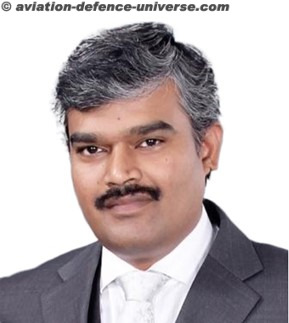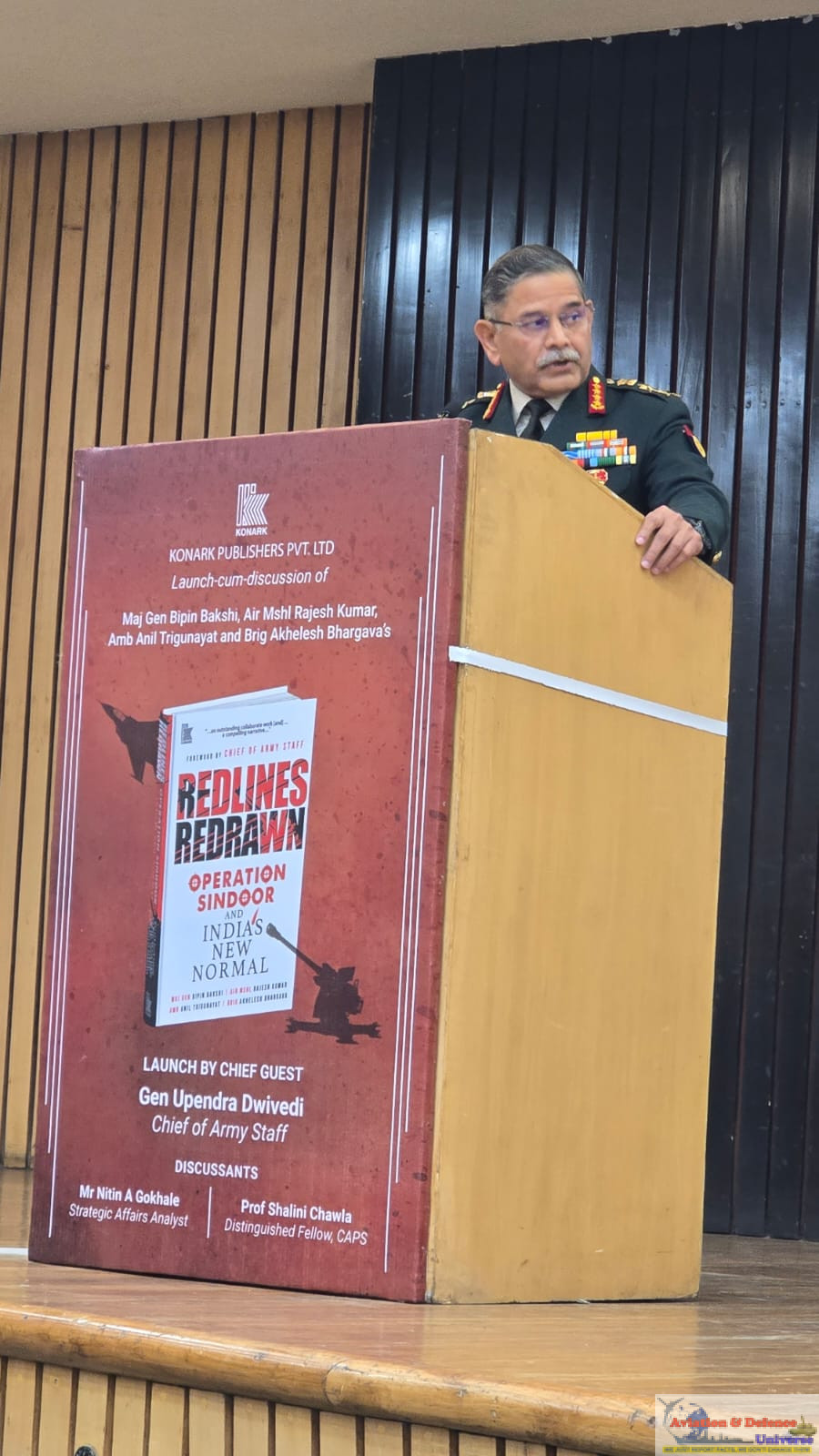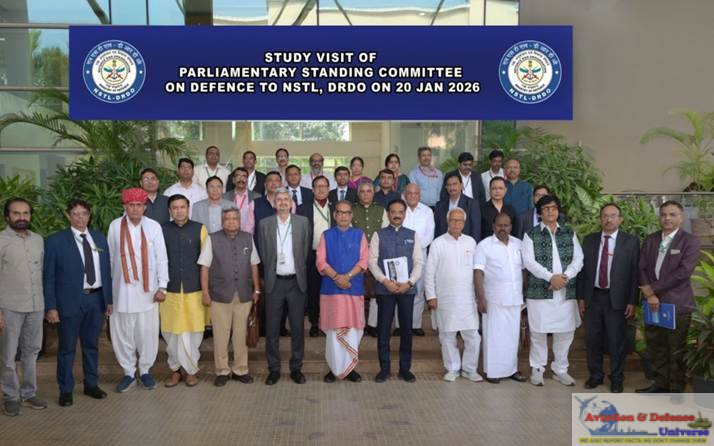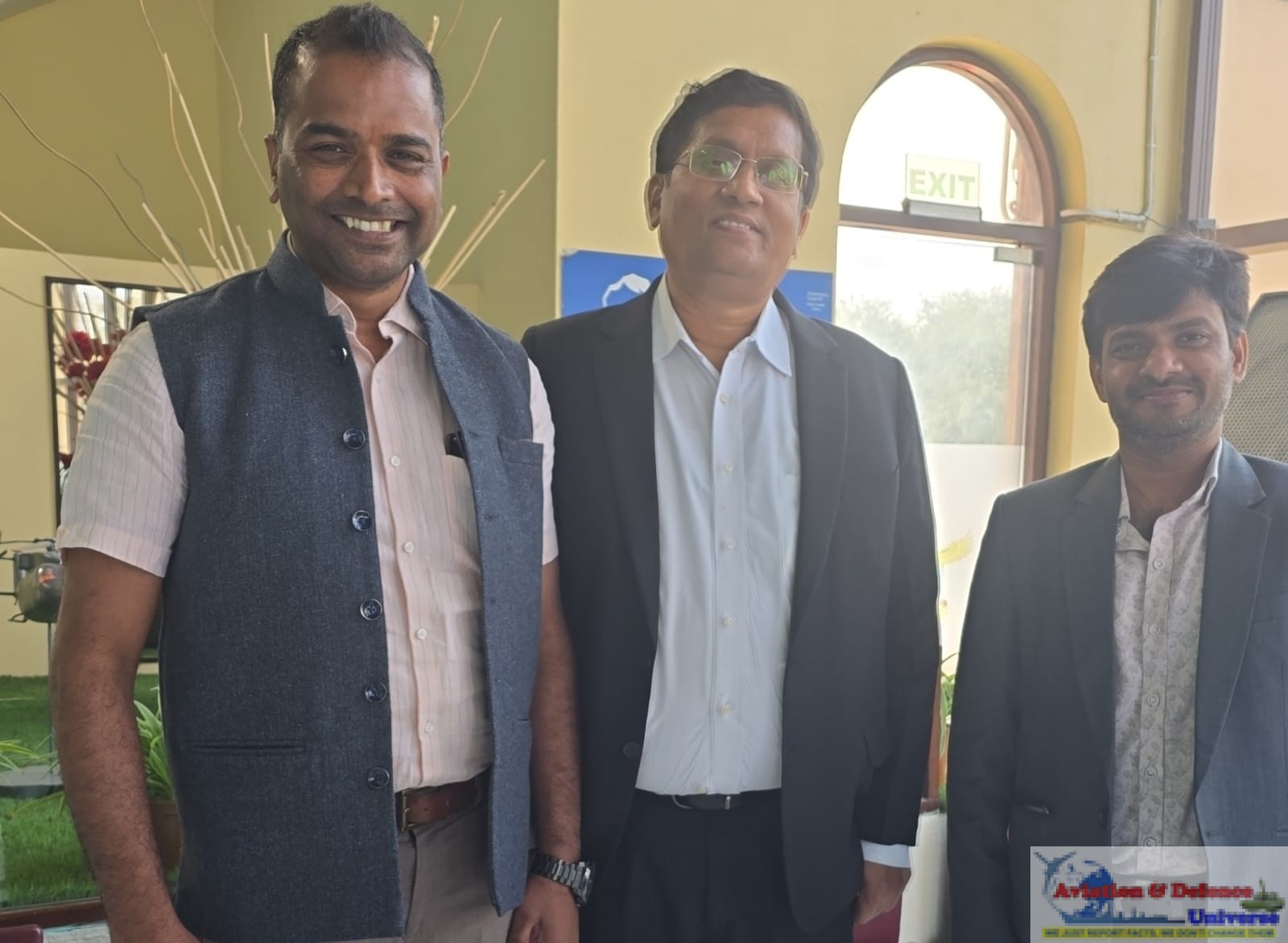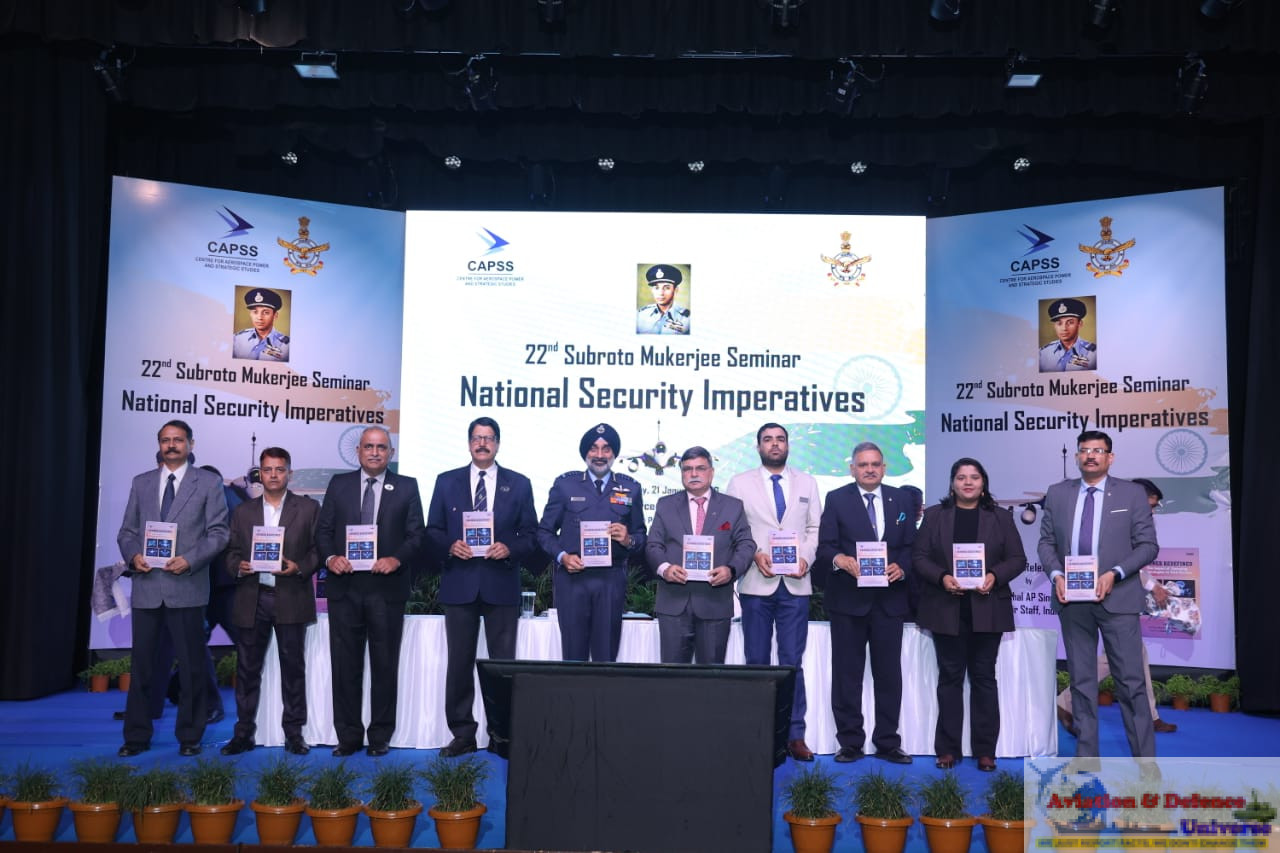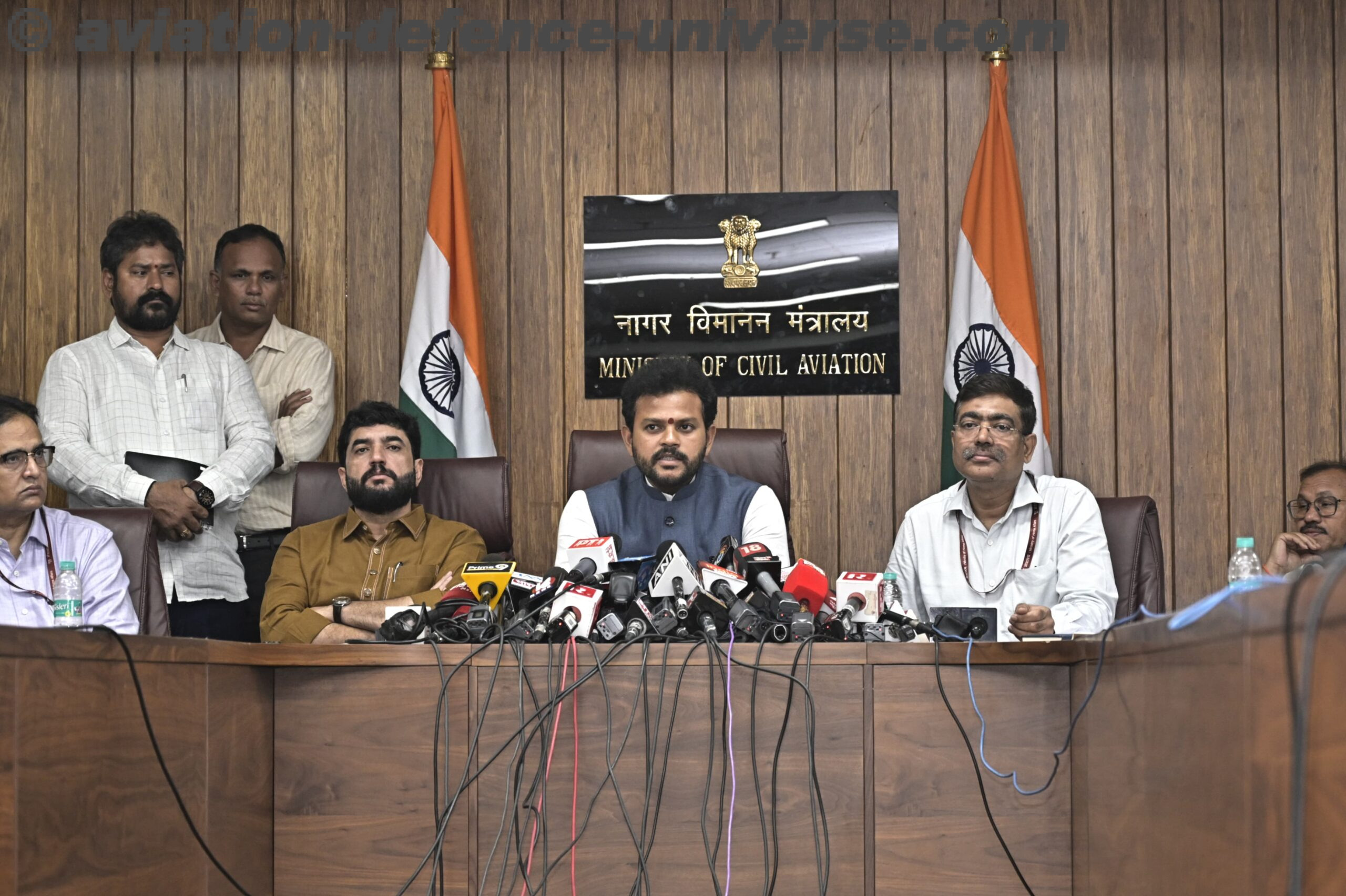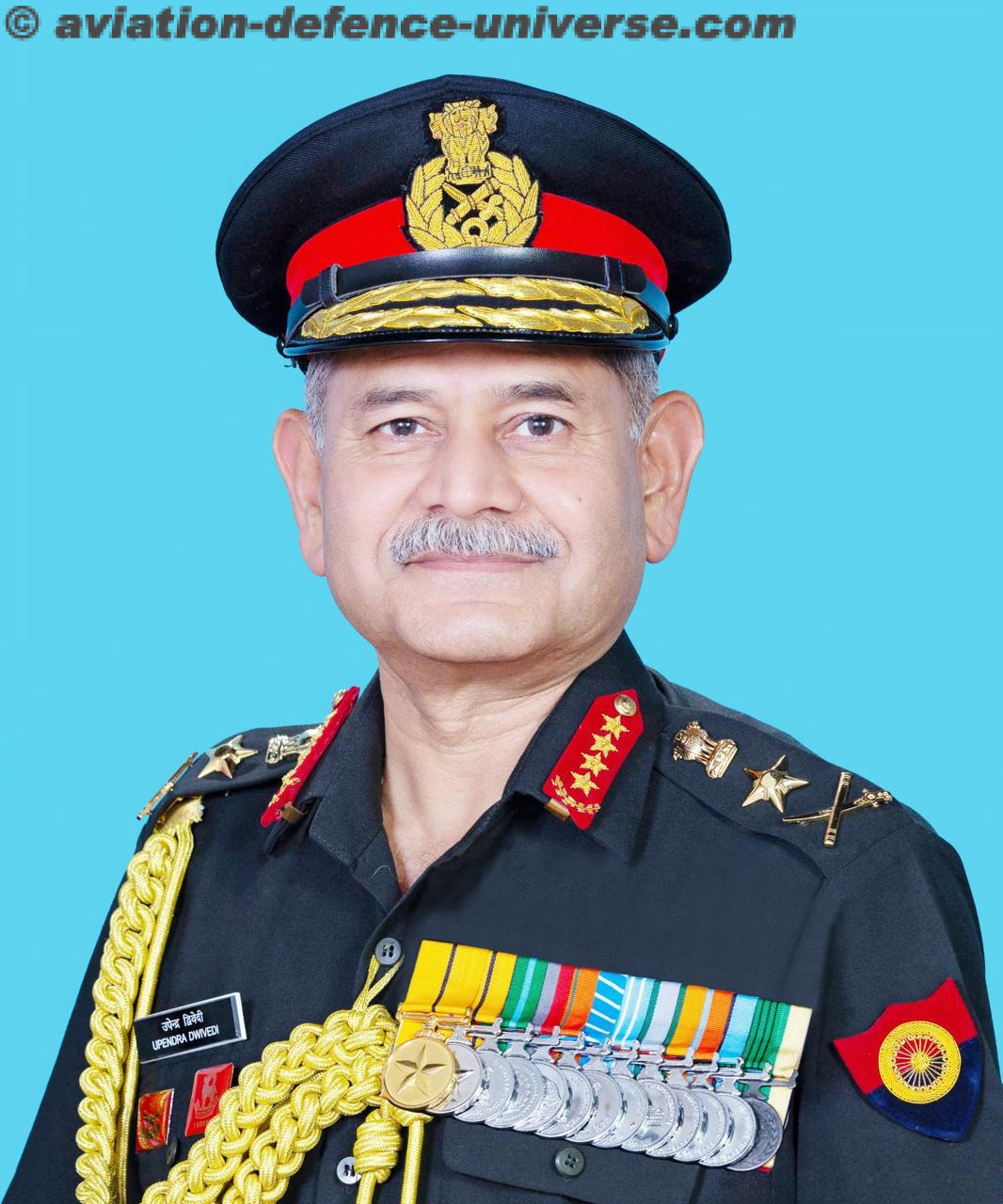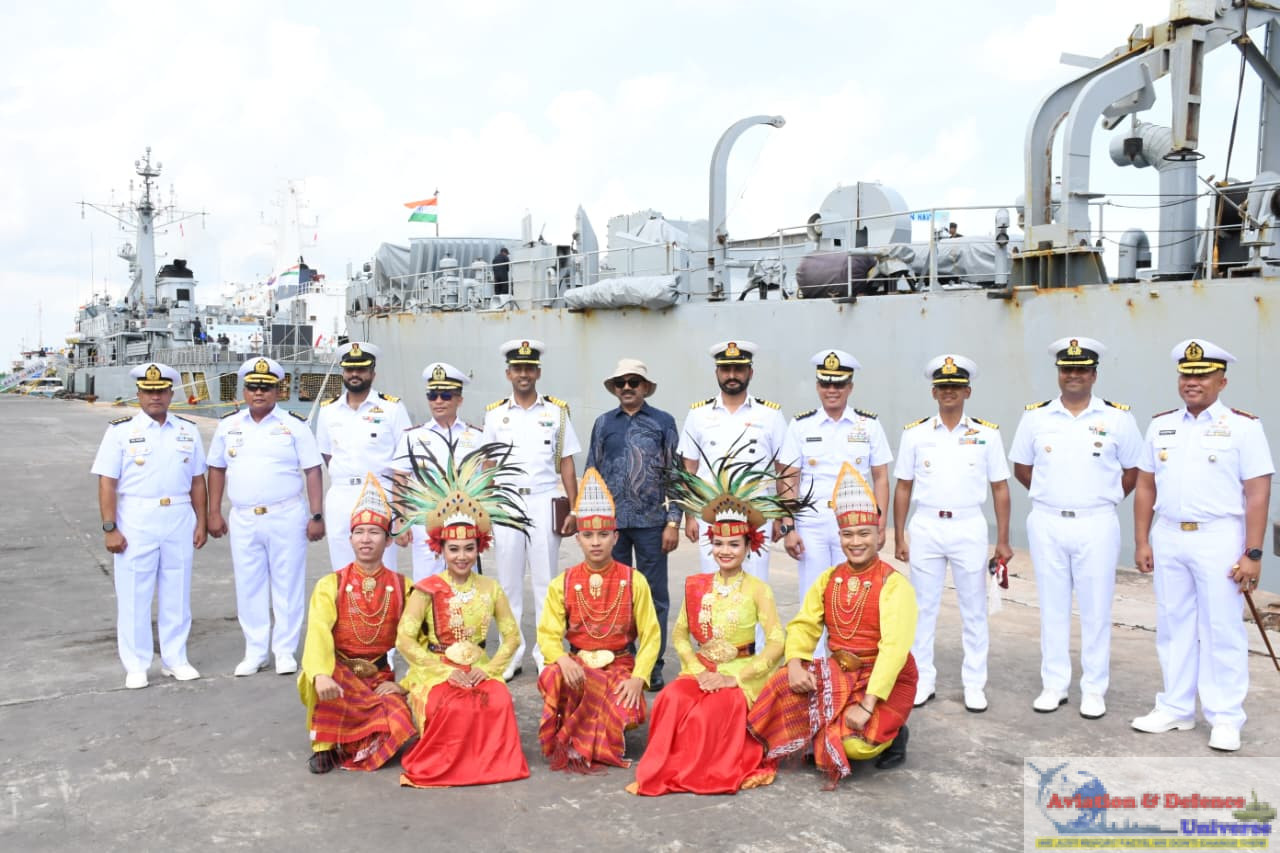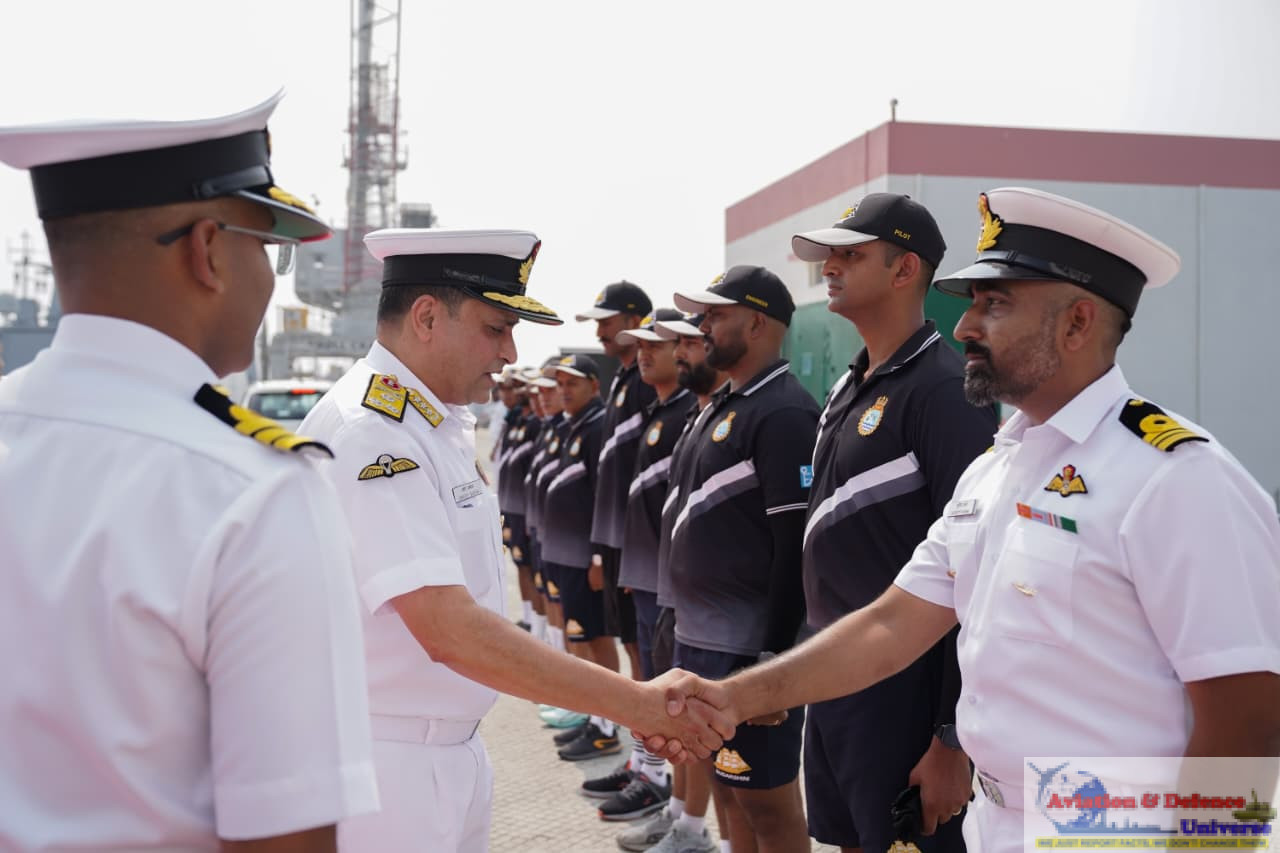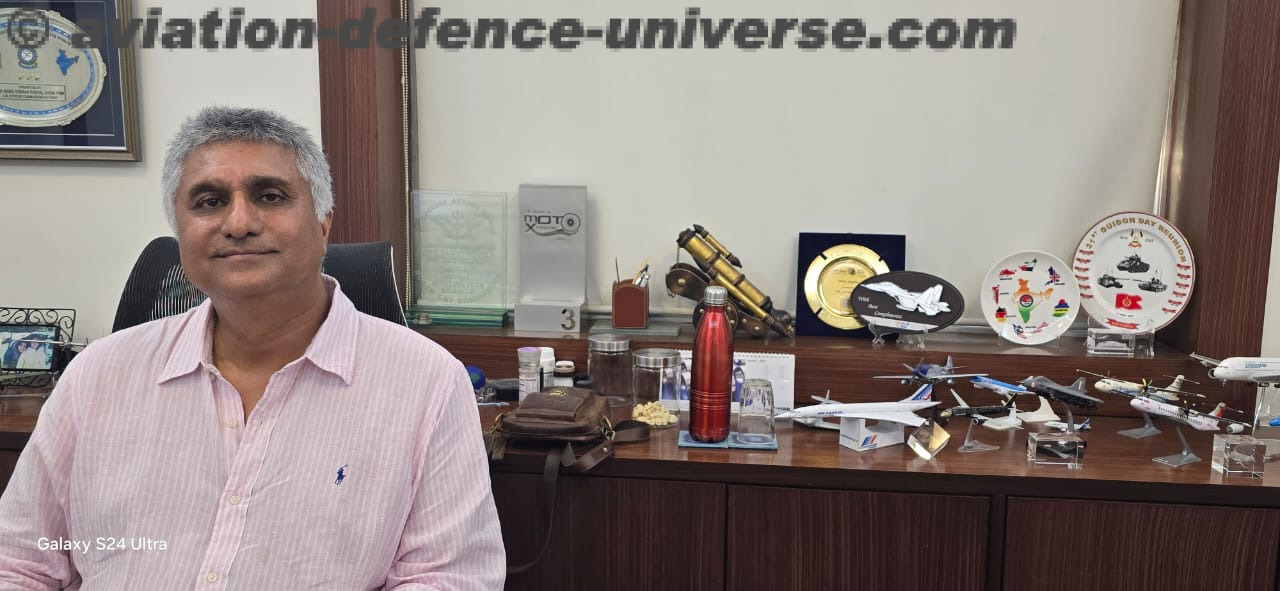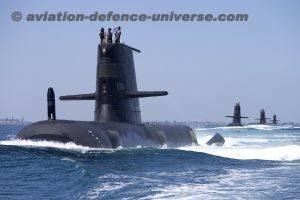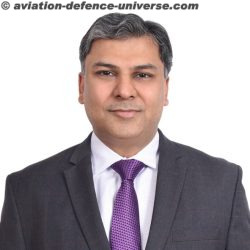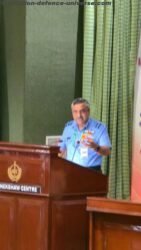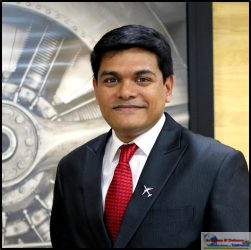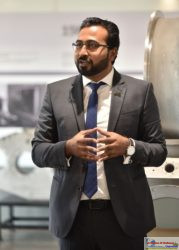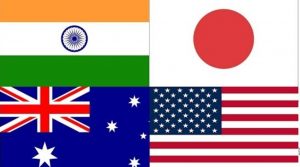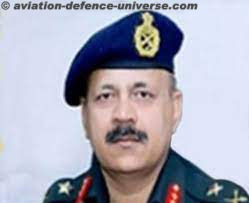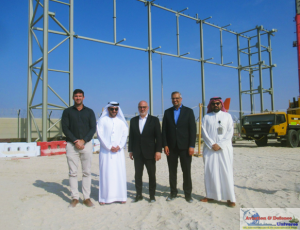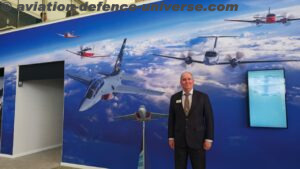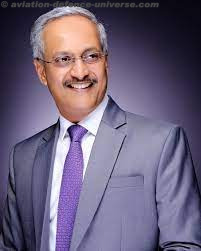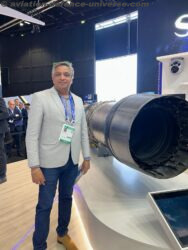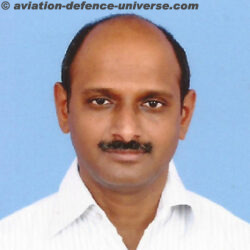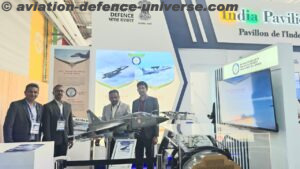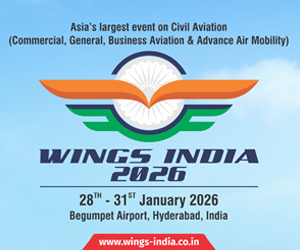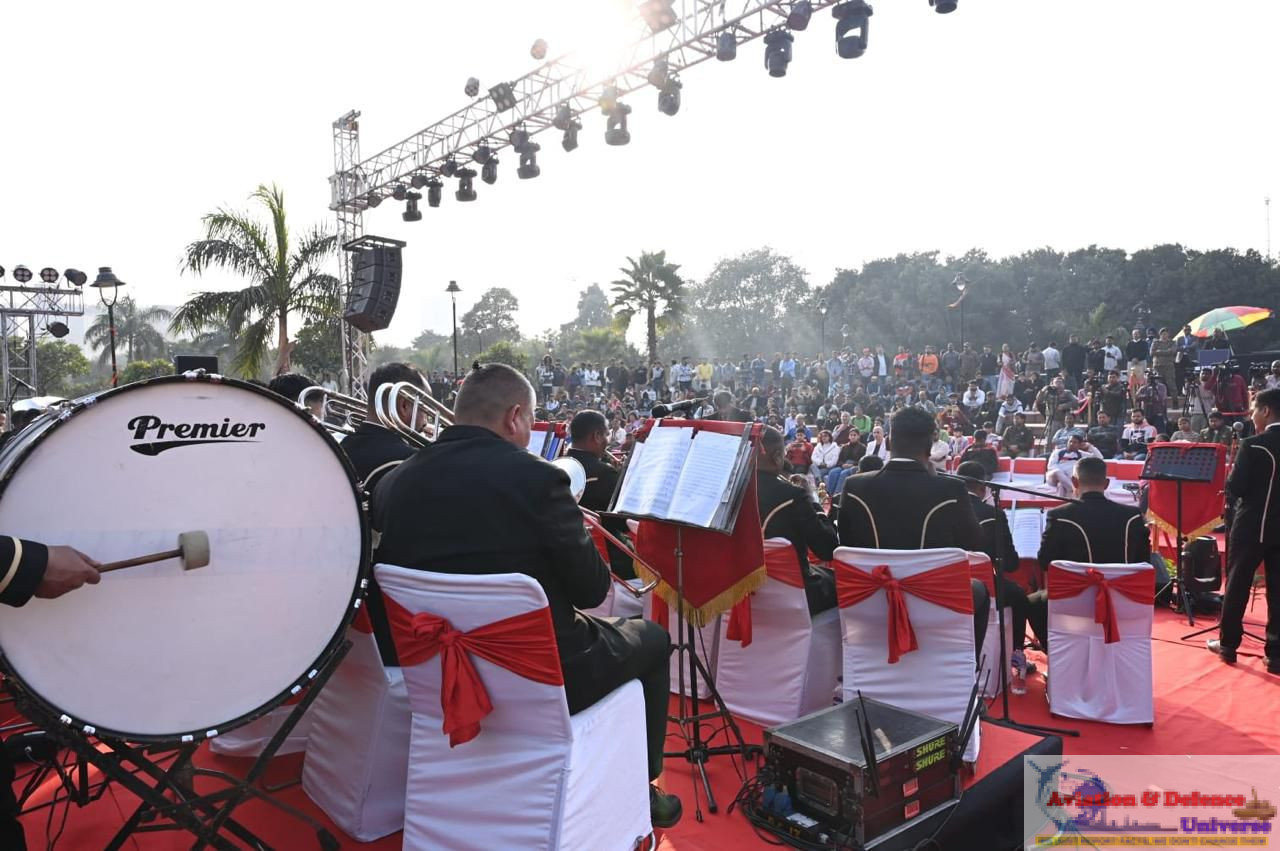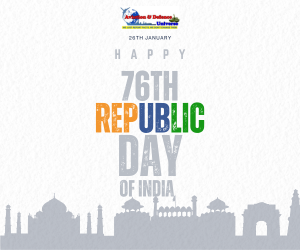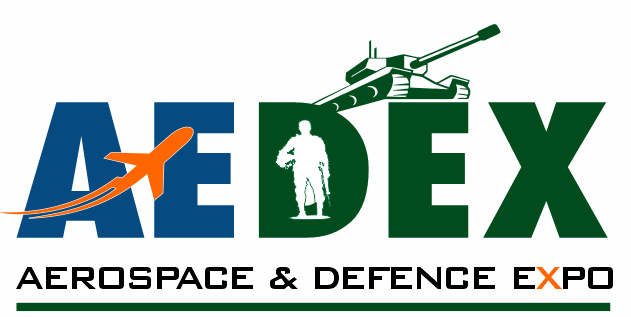- From Procurement to Partnership: Rethinking Indo-French Aerospace MRO Ties
- Why Indo-French MRO Synergy Will Define the Next Decade of Aviation Growth
By Bharat Malkani, Chairman & Managing Director, MAX AEROSPACE
Paris. 15 June 2025. India and France have shared a long-standing and strategic relationship in aerospace, rooted in mutual trust, shared technological pursuits, and complementary capabilities. While much of the attention has traditionally been focused on defense procurement and strategic collaborations, the real opportunity—and arguably, the more enduring one—lies in the Maintenance, Repair and Overhaul (MRO) sector. India and France share a legacy of aerospace collaboration, forged over decades through mutual trust, defense partnerships, and technological innovation. While military and civil aviation platforms like Mirage, Rafale, Airbus, and C295 dominate headlines, one crucial area often escapes the limelight: Maintenance, Repair and Overhaul (MRO).
As CMD of Max Aerospace and a participant in India’s MRO evolution for over 30 years, I believe Indo-French cooperation in MRO is entering a defining phase—one that offers strategic, economic, and geopolitical benefits far beyond transactional contracts. This is not just about business potential, but about strategic autonomy, job creation, and building sustainable aviation infrastructure for the future.
A Shared Aerospace Heritage
France has long stood at the forefront of aerospace engineering, with industrial titans like Airbus, Dassault Aviation, Safran, and Thales representing excellence in aviation systems and innovation. India, meanwhile, has emerged as one of the world’s fastest-growing aviation markets and boasts a proud defense aviation heritage. Over 700 aircraft currently serve the Indian skies, with over 1,000 more on order—making India a critical market for aftermarket services. While aircraft and defense systems have flowed from France to India for decades, the ecosystem to support, maintain, and sustain these assets locally has not kept pace. That gap is now being addressed. France has long been a leader in aerospace engineering and manufacturing, India, on the other hand, has developed one of the fastest-growing civil aviation markets in the world and boasts a formidable defense aviation legacy through HAL and DRDO.
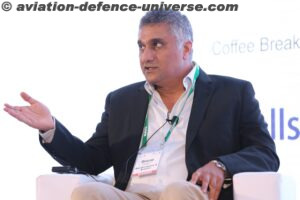 Historically, the collaboration between the two nations has spanned across fighter aircraft (Mirage 2000, Rafale), helicopters, satellite programs, and most recently, the C295 aircraft project where Tata and Airbus are collaborating. However, the MRO segment—critical to sustaining these platforms—has lagged in terms of depth and investment. That paradigm is now shifting. India’s MRO industry which is a sleeping giant is now waking up. Valued at around $2 billion in 2024, has traditionally suffered from fragmented regulations, high taxation, and limited infrastructure. A vast majority—estimated at 85%—of aircraft MRO work for Indian carriers has historically gone overseas, primarily to Southeast Asia and the Middle East. But recent policy changes by the Indian government, including rationalization of GST to 5% for MRO services, the leasing ecosystem reforms in GIFT City, and the liberalization of FDI norms, are beginning to reverse this trend. With over 700 commercial aircraft currently flying and another 1,000+ on order, India is on the cusp of becoming a global MRO hub—not just for itself but for the wider region.
Historically, the collaboration between the two nations has spanned across fighter aircraft (Mirage 2000, Rafale), helicopters, satellite programs, and most recently, the C295 aircraft project where Tata and Airbus are collaborating. However, the MRO segment—critical to sustaining these platforms—has lagged in terms of depth and investment. That paradigm is now shifting. India’s MRO industry which is a sleeping giant is now waking up. Valued at around $2 billion in 2024, has traditionally suffered from fragmented regulations, high taxation, and limited infrastructure. A vast majority—estimated at 85%—of aircraft MRO work for Indian carriers has historically gone overseas, primarily to Southeast Asia and the Middle East. But recent policy changes by the Indian government, including rationalization of GST to 5% for MRO services, the leasing ecosystem reforms in GIFT City, and the liberalization of FDI norms, are beginning to reverse this trend. With over 700 commercial aircraft currently flying and another 1,000+ on order, India is on the cusp of becoming a global MRO hub—not just for itself but for the wider region.
The French Opportunity: Technology, Training, Trust
France, with its globally renowned OEMs, has a critical role to play in catalyzing this transformation. French companies bring unmatched experience in component MRO, engine servicing, avionics, and digital maintenance systems. More importantly, they have the trust of global carriers and defense operators alike. Several French companies are already taking steps toward deeper engagement with Indian MRO entities. Safran has established a significant presence in India, including a major engine MRO facility in Hyderabad aimed at servicing LEAP engines, which power the Airbus A320neo family—a workhorse of Indian aviation. Airbus has expressed strong intent to localize support and services for its fleet in India, including through partnerships with Indian MROs and training organizations. Thales is focusing on avionics repair and support capabilities through joint ventures. These are welcome developments, but they need to be scaled and diversified. The focus must move from piecemeal projects to ecosystem building.
Max Aerospace’s Vision: Bridging the Divide
At Max Aerospace, we have always believed in the power of collaboration. Our mission has been to build India’s capability to maintain the aircraft it flies, both in civil and military domains. To that end, we have been actively working to create industrial partnerships that enable technology transfer, build skill capital, and ensure supply chain resilience.
French firms have been among our most trusted collaborators—whether in avionics, component servicing, or logistics systems. We see significant scope in some areas of deep Indo-French cooperation in MRO:
Engine MRO Capability Building
France’s strength in propulsion systems—through Safran, Turbomeca, and Snecma—is unparalleled. Transferring MRO capabilities for civil engines like the LEAP, as well as military platforms like the M88 (Rafale) or Ardiden (used in Indian helicopters), can anchor long-term strategic autonomy. France leads the world in aviation propulsion. From LEAP and CFM56 to military engines like M88 (Rafale) and jointly developed ‘Shakti’, Indo-French powerplants power Indian skies. Localized engine MRO facilities, underpinned by IP-sharing and technician training, will reduce costs, increase uptime, and secure strategic readiness.
Component and Avionics MRO Joint Ventures
There is a rising need for localized avionics and component repair facilities in India. Creating JV MRO centers backed by French technology and Indian execution can be cost-effective and competitive not just for Indian carriers, but for airlines across South Asia, the Middle East, and Africa. With the right certifications and access to spares, such JVs can serve both the domestic and export markets. Avionics, electricals, landing gear, and even cabin systems represent high-potential niches.
Training and Human Capital Development
One of the lesser discussed but vital aspects is the shortage of certified engineers and technicians. France’s EASA-certified training ecosystem can be replicated in India with French participation, creating a robust workforce aligned to global standards. Human capital is a critical constraint and the ecosystem to creating an efficient world class work force can be adapted to Indian needs. Joint training centers and technician exchange programs will ensure high service standards and job creation.
Strategic Defence Support: Beyond Procurement
 MRO in the defense sector is even more strategic. With the IAF operating Rafale and Mirage 2000 fleets, and Indian Navy deploying French-origin helicopters and systems, having in-country MRO support is a necessity, not a luxury. The Indian government’s emphasis on Atmanirbhar Bharat (self-reliant India) and the push for indigenization under the Defence Acquisition Procedure (DAP) means that OEMs must look beyond just selling platforms. Lifecycle support, performance-based logistics, and depot-level maintenance partnerships are now critical evaluation parameters in defense procurement. French OEMs would do well to integrate with Indian defense PSUs and private MRO firms to co-create depot infrastructure, share IP under controlled regimes, and localize parts manufacturing.
MRO in the defense sector is even more strategic. With the IAF operating Rafale and Mirage 2000 fleets, and Indian Navy deploying French-origin helicopters and systems, having in-country MRO support is a necessity, not a luxury. The Indian government’s emphasis on Atmanirbhar Bharat (self-reliant India) and the push for indigenization under the Defence Acquisition Procedure (DAP) means that OEMs must look beyond just selling platforms. Lifecycle support, performance-based logistics, and depot-level maintenance partnerships are now critical evaluation parameters in defense procurement. French OEMs would do well to integrate with Indian defense PSUs and private MRO firms to co-create depot infrastructure, share IP under controlled regimes, and localize parts manufacturing.
The Global Opportunity: Building a South-South MRO Hub
There is also a broader geopolitical dimension. With India emerging as a non-aligned but influential power in the Global South, and France being an active proponent of multipolar cooperation, the Indo-French MRO partnership can serve third-country markets. Countries in Africa, Central Asia, and Southeast Asia operate French aircraft but often lack adequate MRO capabilities. An India-based MRO hub, backed by French technology and standards, can serve these markets at a fraction of the cost and turnaround time compared to traditional European or American centers. This aligns with France’s Indo-Pacific vision and India’s Act East and Africa outreach policies. France and India also share broader geopolitical and economic interests, particularly in the Indo-Pacific and Global South. Many African and Southeast Asian countries operate French-made platforms but lack domestic MRO capabilities. A robust MRO ecosystem in India, backed by French technology, can serve third-country fleets at competitive costs, reduce dependence on Western or Chinese service hubs, project Indo-French soft power through engineering excellence which aligns with both France’s Indo-Pacific engagement and India’s strategic outreach to the developing world.
Challenges and the Road Ahead
While the opportunities are immense in aviation MRO sector, several challenges remain. Let us understand them. While the opportunities in India’s aviation Maintenance, Repair and Overhaul (MRO) sector are expansive—driven by a booming domestic aviation market, rising aircraft orders, and government incentives—several structural and operational challenges continue to hinder its full potential. High taxation, particularly the historic burden of IGST (now revised), has long made domestic MRO services less competitive compared to global hubs in the Middle East and Southeast Asia. Additionally, a lack of skilled manpower, limited hangar and workshop infrastructure, complex regulatory compliance, delays in land allocation at airports and high rentals for the space both by private and public airports, have further slowed down MRO growth. Indian MROs also face difficulty in obtaining OEM certification and approvals, which restricts their access to lucrative contracts. Despite policy reforms, the ecosystem still needs cohesive coordination between ministries, faster implementation of approvals, and stronger incentives for attracting foreign investment and technology partnerships. These roadblocks must be systematically addressed to transform India into a global MRO hub. Three major roadblocks are listed here.
- IP and Technology Transfer Hesitancy: French OEMs must navigate regulatory and commercial constraints around IP sharing, especially in defense programs.
- Certifications and Regulatory Harmonization: Ensuring DGCA and EASA certifications align smoothly is critical for credibility.
- Infrastructure Bottlenecks: Indian MROs still face land, logistics, and tooling challenges, which need coordinated policy support.
Despite these, the direction is clear. The bilateral willingness exists, the market demand is undeniable, and the geopolitical timing is right. So, it is a story which will be complete with Co-Creation, Not Just Contracting. The Indo-French MRO partnership must evolve beyond mere supplier-buyer dynamics. It must become a model of co-creation—where India offers scale, skill, and strategic location, and France contributes technology, experience, and global standards. This is not just about aviation maintenance. It’s about building resilience, creating thousands of skilled jobs, reducing forex outflows, and projecting Indo-French engineering excellence across continents. The evolving Indo-French collaboration in the Maintenance, Repair, and Overhaul (MRO) sector represents a transformative shift in global aerospace partnerships, positioning India as a future-ready sustainment hub. Strategic headlines like “Indo-French MRO Collaboration: A New Pillar in Aerospace Sovereignty” and “India and France Strengthen Ties Through Strategic MRO Partnerships” reflect the geopolitical and industrial weight of this alliance. Insightful perspectives such as “From Procurement to Partnership” and “Why Indo-French MRO Synergy Will Define the Next Decade of Aviation Growth” emphasize a shift from transactional to long-term capability-building relations. Headlines like “India Emerges as MRO Hub with French Aerospace Collaboration” and “Safran, Airbus, Thales Lead French Investment in Indian MRO Sector” highlight the on-ground momentum and policy tailwinds. Finally, thought leadership lines such as “Co-Creating the Future” and “MRO 2.0: Indo-French Ties That Keep the World Flying” envision a sustainable, co-engineered future for global aviation maintenance. Together, these frames chart the trajectory of a strategic, future-defining Indo-French aerospace partnership.
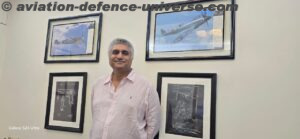 At Max Aerospace, we remain committed to playing a pivotal role in this journey—bringing together French precision and Indian ambition to create a world-class aerospace MRO ecosystem. With India’s push for Atmanirbhar Bharat and the indigenization of defense sustainment under the Defence Acquisition Procedure (DAP), MRO must be part of the procurement life-cycle—not an afterthought. French OEMs must move from product sellers to lifecycle partners, co-investing in depot-level MRO, performance-based logistics, and indigenous repair capabilities. From Transactional to Transformational is the change which the Indo-French MRO industry should project. The Indo-French MRO partnership is no longer a nice-to-have—it is a strategic imperative. With Indian skies expanding rapidly and defense platforms increasingly sophisticated, the ability to maintain what we operate is critical to sovereignty, safety, and efficiency. French firms bring world-class capability. Indian partners offer scale, talent, and a growing market. Together, we can create not just an MRO industry, but a global benchmark in aviation sustainment. At Max Aerospace, we remain committed to making this vision a reality—through partnership, innovation, and a shared commitment to excellence.
At Max Aerospace, we remain committed to playing a pivotal role in this journey—bringing together French precision and Indian ambition to create a world-class aerospace MRO ecosystem. With India’s push for Atmanirbhar Bharat and the indigenization of defense sustainment under the Defence Acquisition Procedure (DAP), MRO must be part of the procurement life-cycle—not an afterthought. French OEMs must move from product sellers to lifecycle partners, co-investing in depot-level MRO, performance-based logistics, and indigenous repair capabilities. From Transactional to Transformational is the change which the Indo-French MRO industry should project. The Indo-French MRO partnership is no longer a nice-to-have—it is a strategic imperative. With Indian skies expanding rapidly and defense platforms increasingly sophisticated, the ability to maintain what we operate is critical to sovereignty, safety, and efficiency. French firms bring world-class capability. Indian partners offer scale, talent, and a growing market. Together, we can create not just an MRO industry, but a global benchmark in aviation sustainment. At Max Aerospace, we remain committed to making this vision a reality—through partnership, innovation, and a shared commitment to excellence.
(Bharat Malkani is Chairman & Managing Director Max Aerospace & Aviation Pvt. Ltd. (Military Aviation MRO, Modification and Weapon Systems Company), Max MRO Services Private Limited, (Civil Aviation MRO Company), President: MRO Association of India (2020 – 2025), Advisory Council Member: Ministry of Civil Aviation , Committee Member: FICCI Task Force for Aviation and Defence, Committee Member: CII, Aviation and Defence and Committee Member: SIDM, Aviation and Defence.)








